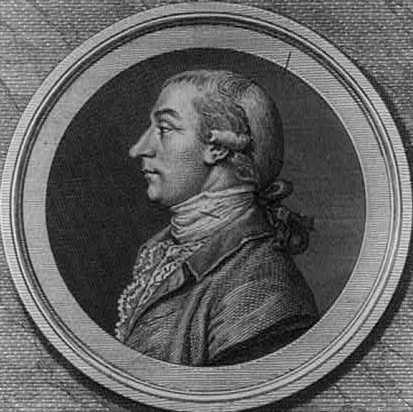Joseph Reed was a lawyer, Adjutant General in the Revolutionary War, and a member of the Continental Congress.

Public domain image.
Joseph Reed was born on August 27, 1741 in Trenton New Jersey, the son of a shopkeeper and merchant. He graduated from The College of New Jersey in 1757 with his Bachelor’s and went on to study law from Richard Stockton, a member of the Continental Congress and a signer of the Declaration of Independence.
He finished his law studies in London, where he met his future wife, Esther de Berdt. The couple settled in Philadelphia and had 5 children.
When the war began, Reed was running a successful law practice. He originally supported a peaceful reconciliation with England, however, he grew to fully support independence and even grew hostile towards Britain.
In April of 1775, he became a Lieutenant Colonel of the Continental Army. He rose to the rank of colonel and eventually became both secretary and aide-de-camp to General George Washington alongside the Marquis de Lafayette and Alexander Hamilton.
He served during the campaign of Long Island and in New York. In 1775, he was promoted to Adjutant-General of the Continental Army. He was one of Washington’s most trusted officers. However, he, along with other generals, questioned Washington’s judgments, especially in allowing New York City dangerously open to invasion. In Dec. 1776, Washington, desperate to learn the location of General Charles Lee‘s forces, opened a letter from Lee to Reed. He was upset to learn of their doubts, but remained supportive regardless. Because he grew up in Trenton and was entirely familiar with the area, he was invaluable during the Battle of Trenton and Princeton.
Joseph Reed was known for his integrity above all else. When a British Naval officer offered him £10,000 and an extremely valuable office in the colonies in exchange for promoting colonial reconciliation with Britain, Reed told him, “I am not worth purchasing; but, such as I am, the King of Great Britain is not rich enough to do it.”
In 1777, Reed was offered a position as brigadier general and Chief Justice of the Supreme Court of Pennsylvania, but he turned both down because he was elected to the Continental Congress.
In 1778, he was one of 5 delegates who signed the Articles of Confederation. In this year he was also elected to the equivalent position to Pennsylvania governor (president of the Supreme Executive Council of Pennsylvania) with an almost unanimous vote. He was re-elected to this position twice.
In 1778, he was caught up in a scandal in which he was accused of traitorous correspondence with England. Until his name was cleared after his death, some people questioned his loyalty, which may be why he took such a strong stance against Loyalists. He was very strongly anti-Loyalist, advocating in Congress for property seizure (his family lived in one such confiscated home) and treason charges against anyone who sympathized with the Crown.
This was a split issue, with some people feeling as Reed did, and some defending the Loyalists. Tensions were so high, that on one occasion, when he oversaw a trial of 23 suspected of treason, he stirred up the already drunk crowd into a passionate frenzy that attacked the defending lawyer and future Supreme Court Justice James Wilson. Cavalry arrived and saved Wilson. It became known as the “Battle of Fort Wilson.” Reed pardoned all of the rioters.
He took part in passing a bill that resulted in the capture of General Cornwallis and the siege of Yorktown. But perhaps the most important contributions he made during his term as “governor” of Pennsylvania was the abolishment of slavery in Pennsylvania and helping to award Revolutionary soldiers with lifelong “half-pay.”
His health failing, he traveled to England in 1784, in hopes of recovering, but he did not. He returned home and died in Philadelphia March 5, 1785 at 43.


